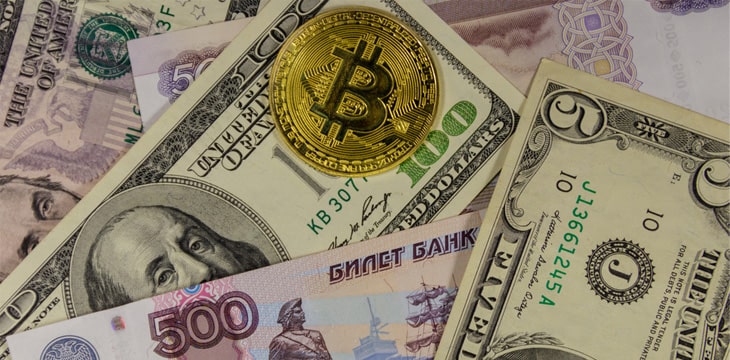|
Getting your Trinity Audio player ready...
|
The United States Treasury has sanctioned the virtual currency wallets belonging to a Russian arms dealer for violating the existing sanctions against Russia and selected entities.
The Treasury’s Office of Foreign Assets Control (OFAC) made the announcement in a statement, confirming the blacklisting of BTC and Ethereum (ETH) addresses operated by Jonatan Zimenkov, son of Vladimirovich Zimenkov. Authorities allege that the father and son were engaged in running a sanctions evasion system, the Zimenkov network.
Onchain reports indicate that the sanctioned addresses do not have any assets in them at the moment but show a history of transactions. OFAC’s seizure implies that the Zimenkovs might have used virtual currencies to facilitate the purchase and sale of weapons to sanctioned entities.
“Persons in this network (the Zimenkov network) have engaged in projects connected to Russian defense capabilities, including supplying a Russian company with high-technology devices after Russia launched its full-scale invasion of Ukraine on February 24, 2022,” said OFAC’s statement.
OFAC also claimed that the duo was involved in multiple deals to sell helicopters to sanctioned Russian entities. The Zimenkovs were slammed with the additional allegation of brokering the sale of Russian weaponry to third-world governments, with the statement reeling out several shell companies used by Igor.
This is not the first time that OFAC has sanctioned virtual currency items, as it famously banned citizens from using digital asset mixer Tornado Cash. OFAC stated that sanctioned entities like North Korea used the mixer to launder stolen virtual currency but critics termed it a “destructive policy decision.”
Of sanctions and virtual currencies
Since the imposition of sanctions on Russia following the invasion of Ukraine, there have been heated discussions on the role of digital assets in evading sanctions. At the start of the armed conflict, there were speculations that Russia would turn to the asset class, prompting U.S. authorities to mandate service providers to report activity on their platforms belonging to sanctioned entities.
However, a cross-section of authorities argues that Russia cannot use virtual currencies to circumnavigate sanctions because of liquidity issues that might arise. The transparent nature of distributed ledger technology is another factor against the widespread use of virtual currencies by sanctioned Russian entities.
Nevertheless, Russia’s Ministry of Finance and the central bank are exploring plans that would allow citizens to use stablecoins in cross-border payments.
Watch: Law & Order – Regulatory Compliance for Blockchain & Digital Assets

 02-22-2026
02-22-2026 




